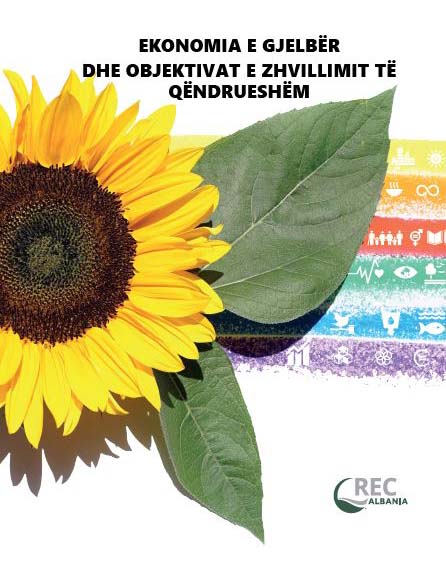There are different approaches, visions, models and tools available to each country, in accordance with its national circumstances and priorities, to achieve sustainable development. In this regard, green economy in the context of sustainable development and poverty eradication as one of the important tools available for achieving sustainable development and that it could provide practical and real options if supported by the right national policymaking. It needs to be emphasized that it should contribute to eradicating poverty as well as sustained economic growth, enhancing social inclusion, improving human welfare and creating opportunities for employment and decent work for all, while maintaining the healthy functioning of the Earth’s ecosystems.
Policies for green economy in the context of sustainable development and poverty eradication should be guided by and in accordance with all the Agenda 2030 the Millennium Development Goals.
Green economy policies in the context of sustainable development should:
(a) Be consistent with international law;
(b) Respect each country’s national sovereignty over their natural resources taking into account its national circumstances, objectives, responsibilities, priorities and policy space with regard to the three dimensions of sustainable development;
(c) Be supported by an enabling environment and well-functioning institutions at all levels with a leading role for governments and with the participation of all relevant stakeholders, including civil society;
(d) Promote sustained and inclusive economic growth, foster innovation and provide opportunities, benefits and empowerment for all and respect of all human rights;
(e) Take into account the needs of developing countries, particularly those in special situations;
(f) Strengthen international cooperation, including the provision of financial resources, capacity-building and technology transfer to developing countries;
(i) Contribute to closing technology gaps between developed and developing countries and reduce the technological dependence of developing countries using all appropriate measures;
(j) Enhance the welfare of indigenous peoples and their communities, other local and traditional communities and ethnic minorities, recognizing and supporting their identity, culture and interests, and avoid endangering their cultural heritage, practices and traditional knowledge.
(k) Enhance the welfare of women, children, youth, persons with disabilities, smallholder and subsistence farmers, fisherfolk and those working in small and medium-sized enterprises.
(l) Mobilize the full potential and ensure the equal contribution of both women and men;
(m) Promote productive activities in developing countries that contribute to the eradication of poverty;
(n) Address the concern about inequalities and promote social inclusion;
(o) Promote sustainable consumption and production patterns;
Green economy in the context of sustainable development and poverty eradication will enhance our ability to manage natural resources sustainably and with lower negative environmental impacts, increase resource efficiency and reduce waste.
It is important to encourage each country to consider the implementation of green economy policies in the context of sustainable development, in a manner that endeavours to drive sustained, inclusive and equitable economic growth and job creation, particularly for women, youth and the poor. In this respect, it should be noted the importance of ensuring that the youth are equipped with the necessary skills for the development of this economy. In this process it is important to include education and capacity-building with the necessary knowledge and skills for the development of green economy.
Involvement of all stakeholders and their partnerships, networking and experience-sharing at all levels could help countries to learn from one another in identifying appropriate sustainable development policies, including green economy policies.





